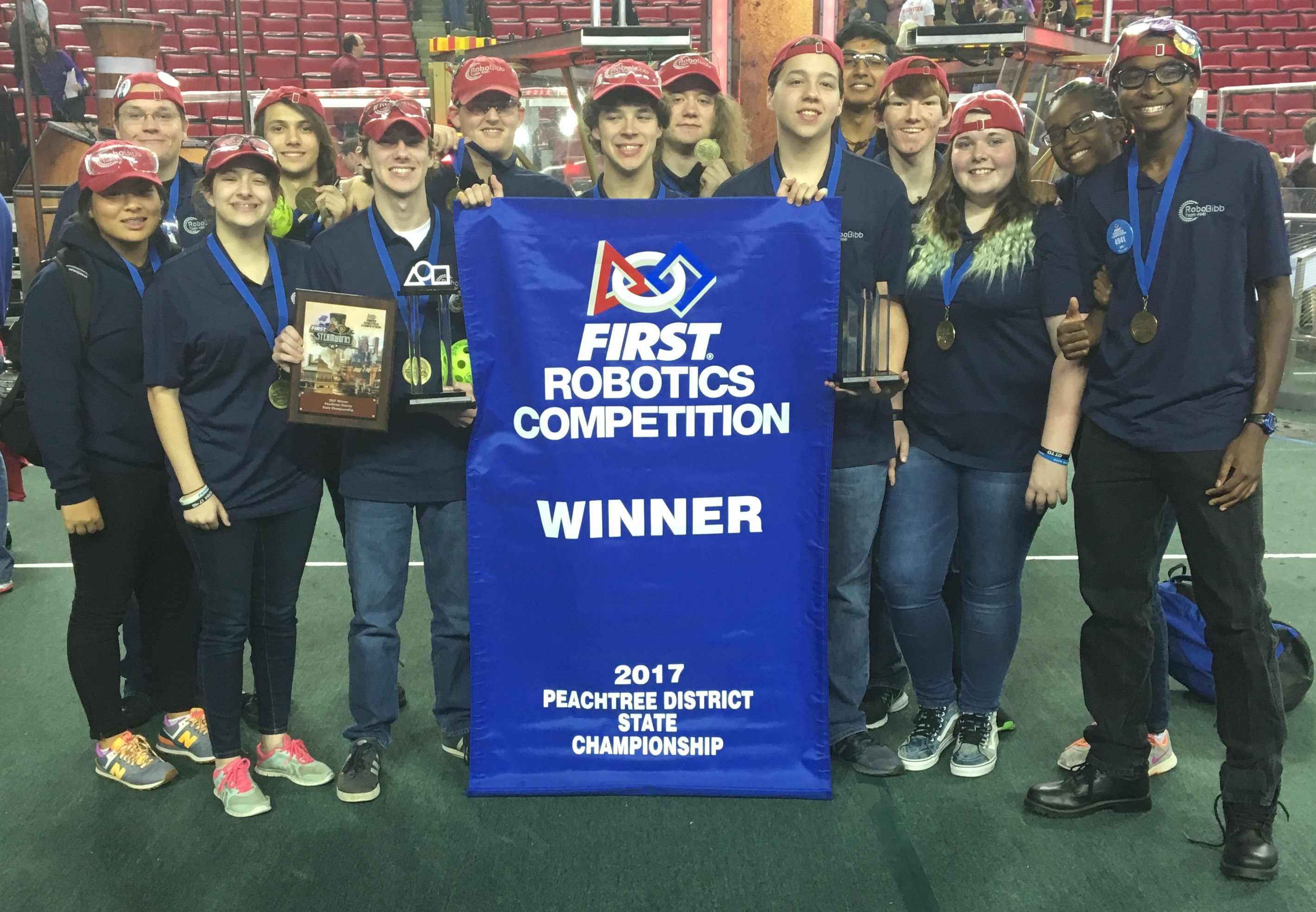Team RoboBibb recently turned heads at the Lego FIRST Robotics Competition in Houston, Texas. Made up of approximately 14 students from Central, Howard, Northeast, Rutland and Westside high schools, as well as the Academy for Classical Education (ACE), Team RoboBibb placed first in the state contest and made it to the quarterfinals of the international competition.
The FIRST Robotics Competition is an annual event that gives high school students and their adult mentors the opportunity to work together to solve a common problem by designing and building a robot. Students are given challenges and have to design and build their robot in six weeks.
The team’s Lead Advisor, Carole Meyers, said the experience was unforgettable. “It has definitely been a whirlwind, and I am especially grateful to the Bibb County School District as well as our local community who funded an expensive trip in a very short amount of time,” she said. “Our students were able to experience an international competition and represented our district and state well … I believe it is an experience that they will remember for the rest of their lives!”
This year’s challenge had three requirements. Each team had to create a robot that could catch a gear and deliver it to a designated peg; climb a rope to a height of approximately five feet and trigger a switch; and deliver fuel to one of two possible hoppers. The field where the action took place was approximately two-thirds the size of a basketball court. There were six robots in total on the field at the time (three on each team) and the matches took place in two-and-a-half minutes.
“As a team, we met, studied the challenge elements and associated point values, and decided to prioritize and address the tasks one at a time during the six-week build session,” Meyers said. “We were able to design, build, and troubleshoot our gear catcher and delivery system within three-four weeks. We then created a winch system to climb the rope and were able to make it functional in our remaining time.”
STEM rules the day in these fast-paced competitions, and Meyers said the robotics competition extends classroom learning in all areas of STEM. “It’s not unusual to see students at the white board drawing and discussing science and physics concepts, math and calculus formulas and computer programming methodologies all in an effort to create a robot that addresses various aspects of the challenge” Meyers said.
Meyers, who has been a classroom teacher for 13 years and a robotics coach for 11, said robotics competitions such as Lego FIRST helps prepare students for the real world. “In this country, our technical industries are regularly looking for college graduates who demonstrate critical thinking skills through college majors and activities,” she said. “…STEM programs that enhance and complement academic learning are excellent opportunities for our students, but also a key to developing our local community. Strong, local industry that is built and supported from within by our local educational systems is definitely a win-win for our community.”
For more information about the Lego FIRST Robotics Competition and how it helps build future scientists, click here.

